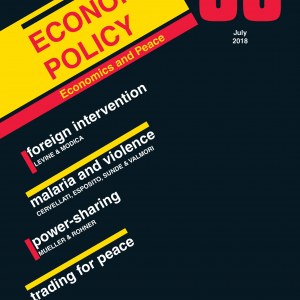
\van Wijnbergen\, S. (1991). Mexico and the Brady plan: The Mexican debt deal Economic Policy, 6(12):13--56.
-
Affiliated authorSweder van Wijnbergen
-
Publication year1991
-
JournalEconomic Policy
Debt relief via injections of outside money may simply supplement payments to creditors, rather than reduce the burden of payments by debtors. For this reason, many have argued that the Brady plan will not help debtor countries. The Mexican debt relief package is a crucial test of whether this pitfall can be overcome. A key feature of the deal was the successful political and legal arrangement of compulsory surrender of existing debt for a range of new debt instruments embracing various forms of explicit debt relief. The paper investigates how official injections or 'enhancements' were in fact divided between debtors and creditors, concluding that most of the benefits did indeed accrue to Mexico, and discusses whether the consequent debt relief is sufficient to enable the resumption of sustainable output growth. There is a discussion of the article on pp 43-56 by M.King. -from Author